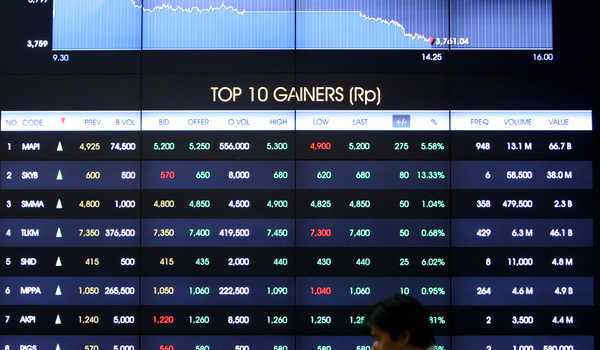AI in Finance: The Promise and Potential Pitfalls

Morgan Chase found that 89 percent of respondents use mobile apps for banking. Additionally, 41 percent said they wanted more personalized banking experiences and information. Time is money in the finance world, but risk can be deadly if not given the proper attention. Accurate forecasts are crucial to the speed and protection of many businesses. Gynger uses AI to power its platform for financing tech purchases, offering solutions for both buyers and vendors. The company says creating an account is quick and easy for buyers who can get approved to start accessing flexible payment terms for hardware and software purchases by the next day.
How AI Is Transforming The Finance Industry
- The nascent nature of gen AI has led financial-services companies to rethink their operating models to address the technology’s rapidly evolving capabilities, uncharted risks, and far-reaching organizational implications.
- The company aims to serve non-prime consumers and small businesses and help solve real-life problems, like emergency costs and bank loans for small businesses, without putting either the lender or recipient in an unmanageable situation.
- Companies also say that better insights and decision-making facilitated by AI is key to decreasing costs.
- Learn wny embracing AI and digital innovation at scale has become imperative for banks to stay competitive.
- Additionally, Entera can discover market trends, match properties with an investor’s home and complete transactions.
Our review showed that more than 50 percent of the businesses studied have adopted a more centrally led organization for gen AI, even in cases where their usual setup for data and analytics is relatively decentralized. This centralization is likely to be temporary, with the structure becoming more decentralized as use of the new technology matures. Eventually, businesses might find it beneficial to let individual functions prioritize gen AI activities according to their needs.
A checklist of essential decisions to consider
Because of these benefits it should come as no surprise that financial companies are leveraging AI to help identify and mitigate risks quicker and more accurately than ever before. With Oracle Fusion Cloud ERP, companies have a centralized data repository, giving AI models an accurate, up-to-date, and complete foundation depreciation calculator of data. With a complete, cloud ERP system that has AI capabilities built-in, finance teams can get the data they need to help increase forecasting accuracy, shorten reporting cycles, simplify decision-making, and better manage risk and compliance.
AI’s novel introduction to the accounting cycle and its best practices applications strain existing legal frameworks, often leading to delays in consensus building around new rules, the discussants noted. This lag results in potential compliance and operational risks, especially for novel financial products and services. Furthermore, the natural risk aversion of regulatory bodies contrasts with the private sector’s agility, necessitating a more nuanced approach to fostering innovation while mitigating risks, they added. AI’s potential in identifying and correcting data biases was another significant theme of the discussion. By making mathematical adjustments, AI can help in recognizing implicit biases, a foundational step in developing fairer financial systems, the panelists pointed out. Innovative solutions like digital identity technologies offer seamless financial system integration, and open finance ecosystems could provide crucial data, driving more inclusive AI algorithms, they added.
If there’s one technology paying dividends for the financial sector, it’s artificial intelligence. AI has given the world of banking and finance new ways to meet the customer demands of smarter, safer and more convenient ways to access, spend, save and invest money. Deloitte refers to one or more of Deloitte Touche Tohmatsu Limited, a UK private company limited by guarantee (« DTTL »), its network of member firms, and their related entities. DTTL and each of its member firms are legally separate and independent entities. DTTL (also referred to as « Deloitte Global ») does not provide services to clients. In the United States, Deloitte refers to one or more of the US member firms of DTTL, their related entities that operate using the « Deloitte » name in the United States and their respective affiliates.
The automation of numerous financial processes—such as data collection, consolidation, and entry—is already a notable add. It helps shift the role of finance from reporting on the past to focusing on the future, through analysis and forecasts that serve the company. Many are looking toward GenAI and other AI applications to drive accuracy and speed in areas such as financial forecasting and planning, cash flow optimization, regulatory compliance, and more. Others are looking to more basic, but rapidly advancing, applications of AI, such as the automation of three-way matching in accounts payable, intercompany eliminations, and invoice capture.

Regional and global engagement
AI-based anomaly detection models can also be trained to identify transactions that could indicate fraud. AI systems in this case are continuously learning, and over time can reduce the instances of false positives as the algorithm is refined by learning which anomalies were fraudulent transactions and which weren’t. AI is becoming integral to customer retention with predictive analytics forecasting future customer behavior, lifetime value, and even churn likelihood, letting businesses focus their efforts on proactively addressing issues as they arise. AI can help deliver personalization by analyzing customer data, preferences, and behavior to provide the right product recommendations, content suggestions, and offers. Companies can also take it a step further with AI-driven customer segmentation for more-targeted marketing campaigns and promotions.
Artificial intelligence in finance refers to the application of a set of technologies, particularly machine learning algorithms, in the finance industry. This fintech enables financial services organizations to improve the efficiency, accuracy and speed of such tasks as data analytics, forecasting, investment management, risk management, fraud detection, customer service and more. AI is modernizing the financial industry by automating traditionally manual banking processes, inventory carrying cost definition enabling a better understanding of financial markets and creating ways to engage customers that mimic human intelligence and interaction. AI is revolutionizing how financial institutions operate and fueling startups. AI models execute trades with unprecedented speed and precision, taking advantage of real-time market data to unlock deeper insights and dictate where investments are made.
